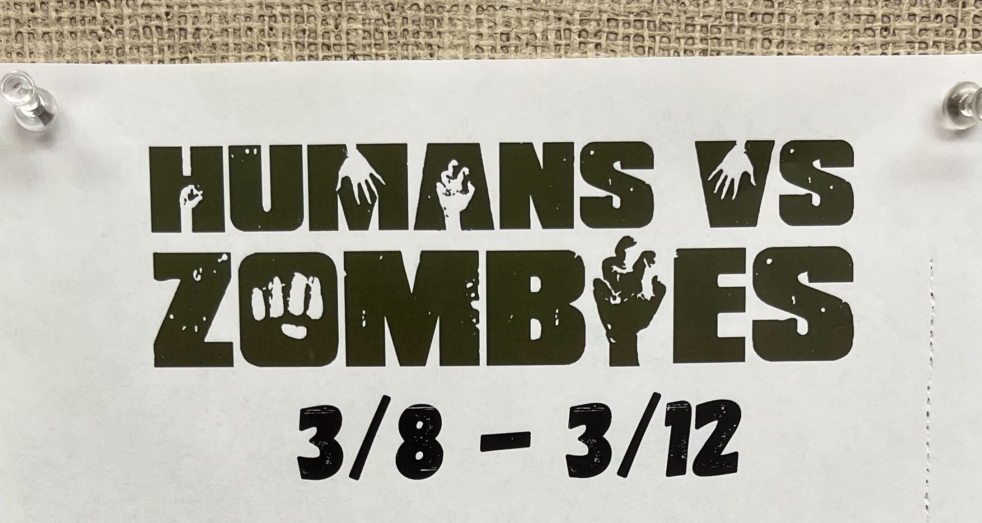Each semester, the annual Humans vs. Zombies (HVZ) game is held on campus, with the group wrapping up their spring event last week. As many students have come to notice, individuals wearing yellow bandanas walking around campus cautiously has become an all too common sight, just as it does twice a year. The event is run by HVZ, a campus organization that hosts the titular event once a semester, with the most recent iteration being from March 8 to 12.
Outside of the game week, the rest of the year is spent planning the next apocalypse. After taking a break during the height of the COVID-19 pandemic, the club held an HVZ game last fall, with around 150 active players.
The spring games are usually smaller, with this semester’s involving around 50 players.
The excitement, community, and spirit of the game drives its players to participate in the annual roleplay, allowing students a rare reprieve from the stresses of a pre-spring break class load. “In terms of what the game actually is, at its core, it’s pretty silly. But we have a lot of fun playing it,” said Justin Shiao, a first-year AE master’s student and one of the head admins for HVZ. Shiao estimates that the organization has been hosting games since 2011, noting that this semester’s event was the 25th game hosted at Tech. The game’s success can be accredited to the strong following that waits all semester to play HVZ.
“Sometimes [players] hang out outside of the game, but it’s just like a core group of people that enjoy playing with each other and having fun,” said Sam Sanders, fourth-year CS and the other head admin of HVZ.
“Obviously the people in that shift as people come and go from Tech, but there’s always been a group of people that know each other from this game,” said Sanders. Shiao and Sanders described HVZ as most similar to tag. The human players are constantly trying to avoid the zombies and fight back by stunning them with light projectiles, represented by foam bullets.
The zombies seek to tag as many humans as possible and convert them to their horde. Understandably, as the zombies continue to turn more human players, the odds of survival continue to dwindle for those humans still attempting to compete in the events, leading to tense showdowns as the competition progresses and ultimately concludes.
HVZ is played outside throughout the duration of game week, with “mission” events hosted every day to encourage interactions between the humans and zombies. “Sometimes it just may happen that you have classes in really weird locations that you never see another player on your way to class each day,” said Sanders. He continued to note that the missions “are like opportunities where it’s like you know there will be other players here, and there will be something hopefully fun to do.”
Each mission has a different theme that fits inside the overarching theme for the game week. This semester’s theme was board games, with one daily mission being based off of the board game Clue and another day’s missions being based around Monopoly.
The massive event requires much planning on the admins’ part, and they take care to adjust the game as needed. “It’s not really fun when there’s a ton of humans, and it’s not really fun when there are a ton of zombies,” said Shiao. “It’s sort of our job to balance the week accordingly.” Sanders also added that evening missions usually get more attendance, and the excitement builds as the event reaches its finale. With the conclusion of this spring’s HVZ game, the admins are looking forward to the next game in the fall, and the prospect of inviting newly matriculated students into the game’s fold. For more information on the next zombie outbreak, students can visit hvz.gatech.edu and join their Discord to receive updates about future games and club events.
